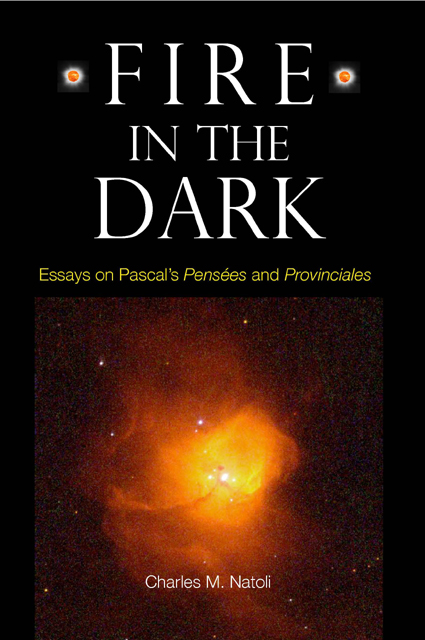2 - The Provinciales: Ruse Against Ruse, Force Against Force?
Published online by Cambridge University Press: 17 March 2023
Summary
’Aριστoς τρóπoς τoυ ἀμvεσθαι τò μή ἐξoμoιoυσθαι.
The best revenge lies in not doing likewise.
Marcus Aurelius, Meditations (VI 6)For good or ill, the noses of readers who comprise the lay, honnête public to which the Provinciales are addressed do not have the final cause of providing a platform for casuists’ high-magnification spectacles. And so, it is not surprising that, as their author intended, a reading of the Provinciales often leaves them profoundly scandalized. This is especially true of Letters I–X which are, as it were, Pascal’s Candide. In them we see the Jesuits’ methods and, especially, their moral theology pilloried and ridiculed with consummate address and dramatic art. The applause of the very public that the lax, debonnaire morality authorized by the Jesuits aimed to please testifies to the overwhelming triumph of the campaign of the Provinciales.
However, Pascal’s rhetorical methods and tone provoked murmurs of criticism even at Port-Royal among fellow Augustinians—to say nothing of the cries of rage and bafflement they wrung from the Jesuits and their backers in the civil authority. One of the many reproaches aimed at the Provinciales since Pascal’s day is especially ironical and piquant: it is that, in his polemic for Port-Royal and Augustinianism, Pascal sometimes proceeds in a manner that is all-too Jesuitical (a term of opprobrium thanks in no small part to the the Provinciales themselves). “[R]use contre ruse, force contre force,” as Sainte-Beuve said, though not without admiration. Indeed, Pascal himself seems to admit to a certain resemblance to his foe. “[V]ous blâmez en moi comme horribles les moindres impostures que vous excusez en vous, parce que vous me regardez comme un particulier et vous comme IMAGO” (You call the smallest deceits in me horrible, but you excuse them in yourselves because you regard me as a mere individual and yourselves as IMAGO, fr.S 450). But did the Jesuitical spirit, “l’esprit de la Société” that he so artfully delineated and so vigorously opposed, really insinuate itself into his own methods in the Provinciales?
According to the Jansenist friend, “l’esprit de la Société” aims to satisfy everyone (V 75). Hence, we can fairly say that it must be in close accord with “l’esprit du peuple” in the term's widest sense.
- Type
- Chapter
- Information
- Fire in the DarkEssays on Pascal's <i>Pensées and Provinciales</i>, pp. 27 - 40Publisher: Boydell & BrewerPrint publication year: 2005



